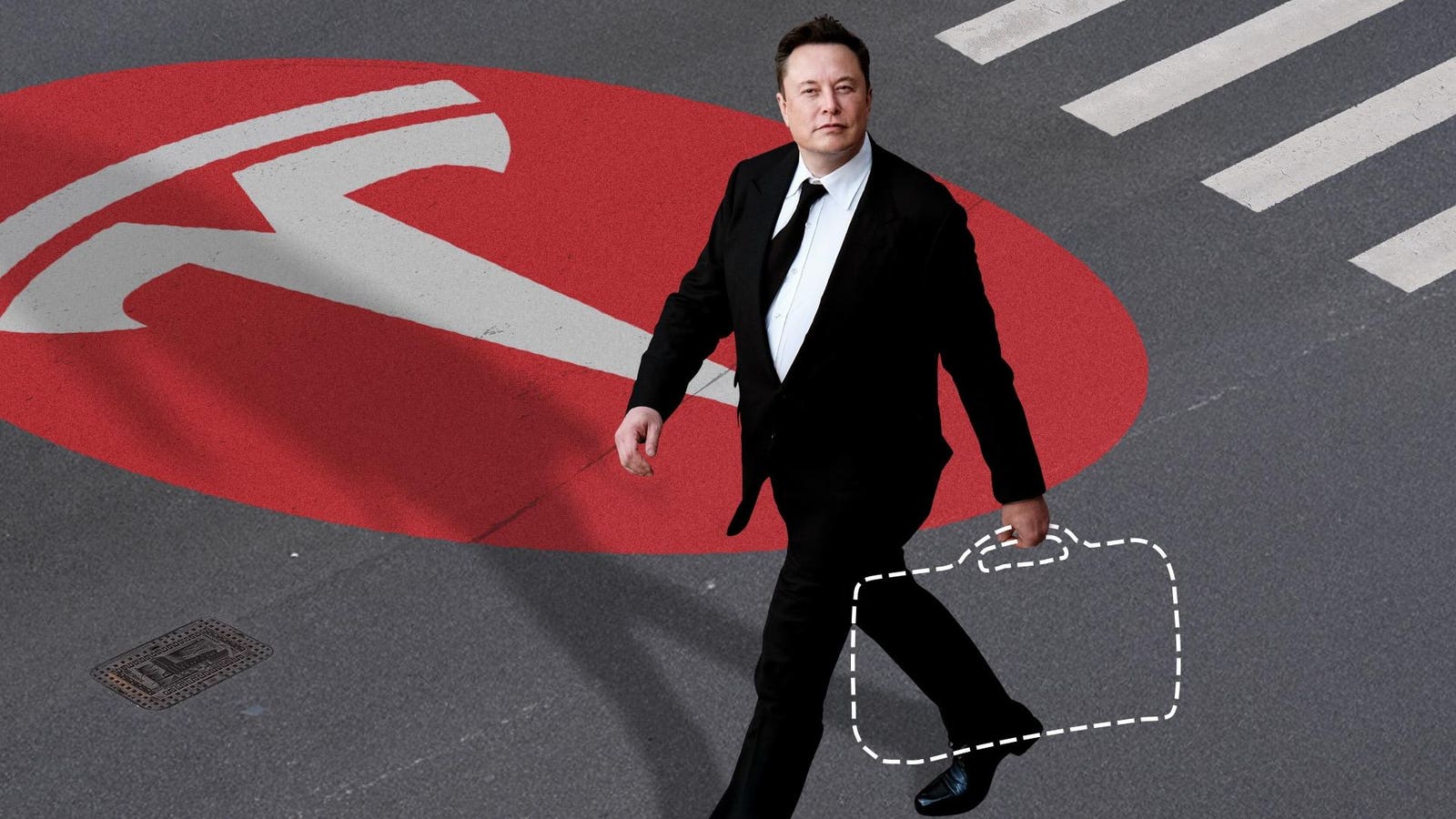Elon Musk is scaling back his involvement with DOGE, which previously sparked protests and vandalism at Tesla stores. However, Tesla’s electric vehicle (EV) business requires a hit product, and none appears imminent. Additionally, the company’s booming battery business, a bright spot in Q1, will be affected by Trump’s tariffs.
This week, Tesla reported its worst quarterly results in four years. Sales dropped by 9%, and income plummeted by 71% due to a 20% decrease in automotive revenues. The company refrained from providing sales targets for the rest of the year due to tariff concerns and market instability.
Despite this, Tesla’s stock rallied, increasing by 9% since Tuesday. Investors were encouraged by Musk’s announcement that he will reduce his federal government duties through DOGE and return to Tesla in a more full-time capacity (while still managing SpaceX, xAI, and Neuralink).
However, this isn’t the solution investors believe it to be. Tesla’s current challenges have worsened since Musk joined the Trump Administration as a “special government employee,” leading to declining profit margins, increased competition, and a tarnished brand image. These issues persist even if Musk becomes a more active CEO again. Worse, Musk seems to lack ideas for resolving them, focusing instead on uncertain futures like robotaxis and humanoid robots.
Tesla profits from selling cars and battery storage systems, both of which are struggling. It lacks a successor to top sellers like the Model Y and Model 3 (the Cybertruck, its latest release, has been a significant flop). The company will also face President Trump’s tariffs, expected to impact auto sales industry-wide. A looming 145% tariff on imported Chinese battery cells will heavily affect Tesla’s battery pack business, a Q1 highlight.
Musk downplayed these issues during the April 22 earnings call. “We’re not on the ragged edge of death, not even close,” he stated. “There are some challenges, and I expect there will probably be some unexpected bumps this year.”
Sue Benson of The Behaviours Agency noted, “Remember VW’s emissions scandal? One regulatory crisis cost it tens of billions and its reputation. That’s where Tesla is now. Except this time, it’s not about the product. It’s about the person. It’s too late to separate man and brand. And in the meantime, it’s lost its EV advantage.”
Musk’s political activities have tarnished Tesla’s brand image, particularly in key markets like California and Europe. Surveys indicate unfavorable views of Musk and disapproval of his DOGE work. A YouGov/Yahoo News survey found that 67% of Americans would not consider buying or leasing a Tesla, citing Musk as the reason.
Tesla’s most pressing challenge is reversing its 13% decline in EV sales in Q1. Automotive revenue dropped by 20%, meaning fewer vehicles were sold at lower prices. The company’s $409 million profit came entirely from regulatory credits. Without the $595 million in credits sold in the quarter, Tesla would have posted a net loss.
Tesla plans to refresh the Model Y and Model 3 rather than introduce new models. Industry expert Glenn Mercer criticized this approach, stating, “Just leaving these models in the market forever, with no significant sheet metal changes, means they are–to overstate things–zombies.”
Tesla faces stiff competition from Chinese EV makers like BYD and domestic competitors such as General Motors, Hyundai, Kia, Honda, and Rivian. Tesla’s EV sales share dropped to 43% in Q1 from 75% three years ago.
Musk has shifted focus to robotaxis, AI services, and worker robots. However, Tesla hasn’t demonstrated capabilities in these areas. Investors like Ross Gerber want Musk to prioritize new products, suggesting the Cybercab concept could have been a lower-priced EV.
Tesla is somewhat insulated against Trump’s tariffs but will be affected by higher costs for steel, aluminum, and auto parts. The tariffs will significantly impact Tesla’s energy generation and storage business, which relies on Chinese lithium-iron-phosphate (LFP) battery cells. A 145% tariff on these cells will increase prices for Tesla’s Megapacks and reduce business from utilities.
Gerber, once a Musk supporter, sees no signs that Elon has ideas to fix Tesla’s near-term product strategy, even with reduced DOGE involvement. “It’s not going to solve their problems,” he said.
— new from Forbes
